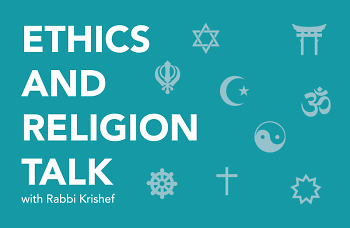Read Part 1
The Rev. Sandra Nikkel, head pastor of Conklin Reformed Church, writes:
“There are many people today who would advocate for making room for: my truth, your truth, and everyone else's truth. Many of these people would also advocate for making room for God's truth--as an accessory to adorn our lives. This is not only insulting to God, but detrimental for our spiritual health and the well-being of our society.
“The fact is that, acknowledging God's truth is not enough; we must live by it. It must enter our minds, penetrate our hearts, and transform our daily living. Even if we acknowledge God's truth as the only Truth, unless we're living it, we're practicing empty religion. This is what God exposes in Titus 1:16: "They claim to know God, but by their actions they deny him. They are detestable, disobedient and unfit for doing anything good."
“In the midst of a world that is becoming more and more comfortable with watering down the Truth, distorting it, and mocking it, we, the children of God, must lift it up, be ruled by it, and resist the temptation to weed out what we don't like. And no matter the cost, we must be ready to proclaim it, live by it, and uphold it so that the world may know that God does not adjust to us; we adjust to Him--who lives and walks in Truth and Love!”
Linda Knieriemen, Senior Pastor at First Presbyterian Church in Holland, responds:
“Yes, but what is precisely is this Truth about which Sandra is so confident? The words of scripture? My tradition’s scripture? Your tradition’s sacred writings ? Which words without those writings? Love your enemy or smite them? Who gets to decide? Presbyterians hold to a principle that people of good faith may differ in their understanding of scripture. I do not believe that means one or all are ‘watering down the Truth.’
“Any truth which is truly Truth is deep, so deep that it crosses boundaries of denomination and religious tradition and finds universal and timeless affirmation: God is Love. Worship God and God alone. Love your neighbor (and by then way, everyone is your neighbor). Walk humbly. Provide for those who are poor and marginalized. All people are made in the image of God.
“Too often Christians have been so confident about what God wants (what the truth is?) in the specific human behavior, like sexual behaviors, that they neglect the higher things. Like Love.”
Rev. Ray Lanning, a retired minister of the Reformed Presbyterian Church of North America, responds:
“I concur with every word of Rev. Nikkel’s exhortation. To be a Christian is not a matter of holding certain opinions or subscribing to a creed. What we profess in words is only a first step; the words don’t matter if they make no difference in the way we live.
"Educated in the public schools of Philadelphia, I belong to a generation constantly admonished that, ‘There are no absolutes!’ What we may hold for truth, it was said, is only relatively, subjectively true, true (more or less) for us, but not for others. At some point this intellectual and moral relativism was shattered for me by the truth and power of God’s written Word, the Bible. Here I discovered truth that is absolutely, categorically true, imbued with power to evoke faith and command obedience.
“Central to this body of revealed truth is the glory of Almighty God, Maker of heaven and earth, and the person and work of His Son, Jesus Christ, as Savior and Lord. Five decades of living in the light of this truth have only confirmed my faith in it, and sharpened my perception of its relevance to the world we live in, and the deepest needs of fallen humanity. The sorrow of my life has been that my knowledge of God’s Word has always outstripped my ability to live it out in practice. The joy of my life has been to impart this knowledge to others, and encourage them to join in the great venture of living in this world as followers of Jesus Christ.”
The Rev. Steven Manskar, pastor of Trinity United Methodist Church in Grand Rapids, responds:
“Thank you Sandra Nikkel! I agree. The only thing I’d add is failure to accept and live the truth is a rejection to turn away from God. Christians believe Jesus Christ is the second person of the Trinity. Jesus is ‘the way, the truth, and the life’ (John 14:6) and ‘If you continue in my word, you are truly my disciples; and you will know the truth, and the truth will make you free’ (John 8:31). All this is to say people who say they are Christians and then accept lies and conspiracy theories and who continue to regard facts and truth as lies and ‘alternative facts’ have turned away from the one who is ‘the way, the truth, and the life’ of God. They are prisoners of the powers and principalities that oppose God and God’s kingdom.”
This column answers questions of Ethics and Religion by submitting them to a multi-faith panel of spiritual leaders in the Grand Rapids area. We’d love to hear about the ordinary ethical questions that come up in the course of your day as well as any questions of religion that you’ve wondered about. Tell us how you resolved an ethical dilemma and see how members of the Ethics and Religion Talk panel would have handled the same situation. Please send your questions to [email protected].
The Rapidian, a program of the 501(c)3 nonprofit Community Media Center, relies on the community’s support to help cover the cost of training reporters and publishing content.
We need your help.
If each of our readers and content creators who values this community platform help support its creation and maintenance, The Rapidian can continue to educate and facilitate a conversation around issues for years to come.
Please support The Rapidian and make a contribution today.
